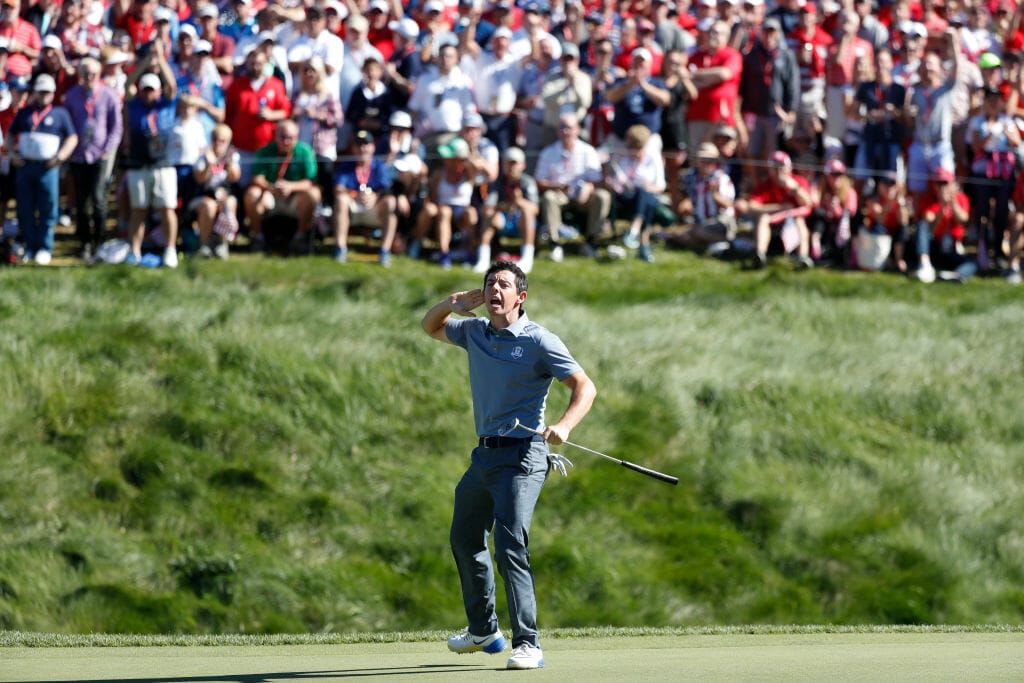So, it’s official. Not that it really comes as any surprise to sane-minded people with the slightest grasp on current affairs, but the PGA Tour has announced that fans will not be admitted to the Memorial Tournament in little over a week’s time.
When rolling out the proposed “return to action” plan, that it would be deemed safe and advisable to admit 8,000 fans seemed unlikely, but largely dealing in unknowns, it was worth a try. On Thursday, Ohio reported 1,301 new cases of COVID-19 – the highest daily total since mid-April when 1,380 and 1,317 were confirmed on back-to-back days. With a population of 11.5 million, infection rates are still below what we saw at the height of the pandemic over here, but the notion that the disease is remotely under control is laughable.
Three and a half months after the Tour pulled the plug at the Players Championship, the COVID situation in the United States is more severe than ever with almost 60,000 new cases identified on Friday. With considerably more information about the transmission and effects, the Tour can continue as long as the bubble is maintained. And the spike in cases nationwide should be as effective a kick-up-the-backside as the positive tests within Tour circles.
But admitting spectators would be a public relations nightmare at best and an act of domestic terrorism at worst. The writing was on the wall when Nick Watney became the first player to test positive, and each subsequent case was another nail in the coffin.
Realistically, with most states experiencing a second wave of cases, the likelihood of it being deemed safe to admit fans to any large scale sporting events this side of October seems really slim. The PGA Championship at Harding Park in San Francisco, which is scheduled for 6-9 August has already shut the door on spectators, and we can expect the WGC FedEx St. Jude Invitational the week before to follow suit.
But does anybody really care? I wrote a couple of weeks back about how golf without fans arguably makes it a better television spectacle, and the players seem to have quickly become accustomed to silent galleries.
The “new normal” is a term that’s become extremely common in the past few months, and the golf we’ve become accustomed to in recent weeks is the new normal for the foreseeable future. But how sustainable is it?
Sure, without upwards of 50,000 spectators flooding through the gates daily, the costs of running a tournament drop dramatically. There is no need for extensive policing, medical services, transportation costs, and basic services, but this is more than offset by the revenue generated in ticket sales, merchandising, and catering contracts.
And nowhere is this more evident than at the Ryder Cup where – in other circumstances – the event would be a sell-out, merchandise would sell like hot cakes, hot cakes would sell like cold beer, and cold beer? Well, there’s not many states with a higher beer consumption rate per capita than Wisconsin. As much as players and fans don’t want a fan-less Ryder Cup, the PGA of America are even more desperate to have the galleries packed.
There has already been one false flag report suggesting that the event was postponed, and a fortnight ago it was widely reported that an official announcement was imminent. But we’re still waiting.
With less than three months to go, the odds are heavily in favour of large gatherings still being prohibited. And even in the unlikely event that it gets the green light, then surely the morality deserves discussion.
Either way, a decision needs to be made.
Over to you PGA of America..
























Leave a comment